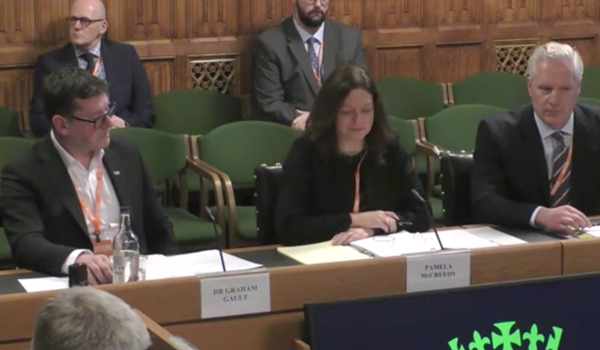PSNI briefs MPs about the resourcing pressure on policing
The Police Service of Northern Ireland’s (PSNI) chief operating officer has warned MPs about the challenges facing policing as a result of “significant underfunding” since 2010.
Pamela McCreedy said this has led to a declining police officer and staff headcount in Northern Ireland and is having a “serious impact” on victims of crime, local communities and the PSNI’s workforce.
She also emphasised the need for sufficient and sustainable funding going forward to enable the police service to recover.
Ms McCreedy was giving evidence in Westminster to the Northern Ireland Affairs Committee on Wednesday (January 15) The committee is examining the funding and delivery of public services in Northern Ireland.
She noted that since 2010, the PSNI’s budget had reduced by three per cent while health spending had increased by almost 90 per cent.
She said the impacts of years of underfunding had included reduced neighbourhood policing where the PSNI currently has 305 fewer neighbourhood officers than in 2014 and 79 fewer than 12 months ago.
Despite the importance of neighbourhood policing, the PSNI has had to amalgamate a number of neighbourhood policing teams (NPTs) to cover larger areas and a previous commitment to provide 16 hour daily coverage of neighbourhood policing has had to be removed, said Ms McCreedy.
In addition, a she said a reduced capacity to investigate crime meant slower investigations, and in some cases, a less satisfactory service to victims and knock on delays for the criminal justice system.
Eleven of Northern Irelands 28 station enquiry offices also closed last year, reducing police visibility and accessibility to the public
The chief operating officer told MPs that in order to address this declining headcount, the PSNI has formally submitted an urgent Recovery Plan to the Department of Justice to recover officer and staff numbers to 7,000 and 2,572 respectively over the next three years.
A new recruitment campaign for student officers is also launching this month.
“These are important first steps but the additional cost is estimated at around £200 million over a five-year period and will require additional funding from the Northern Ireland Executive,” said Ms McCreedy.
MPs asked about the impact of health and mental health-related calls on PSNI resources. Ms McCreedy noted that the PSNI had become the “emergency service of first and last resort”. She highlighted that during a recent four-week period, on average when waiting for a mental health assessment in emergency departments, the waiting time for PSNI officers with a member of the public was nearly 14 hours.
Speaking afterwards, Ms McCreedy said “Policing is absolutely crucial in Northern Ireland and it is crucial that a sufficient and more sustainable funding settlement is achieved for policing in Northern Ireland if we are to deliver for the community in Northern Ireland.”


